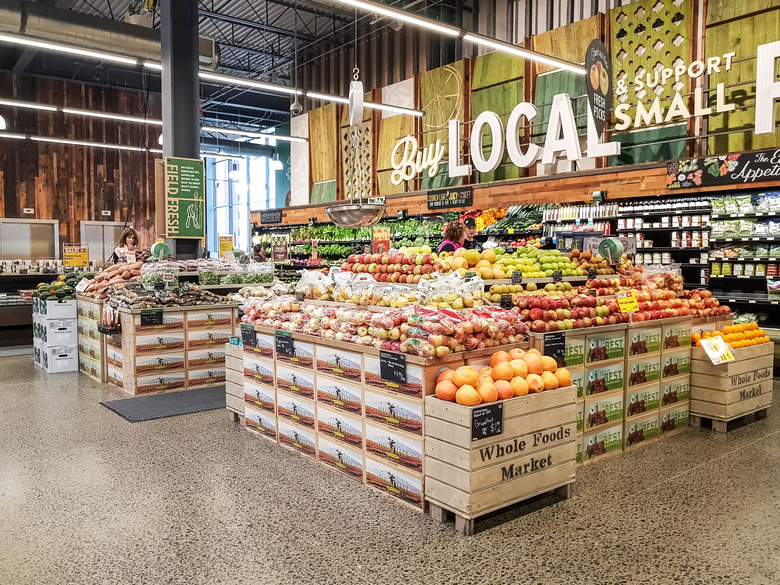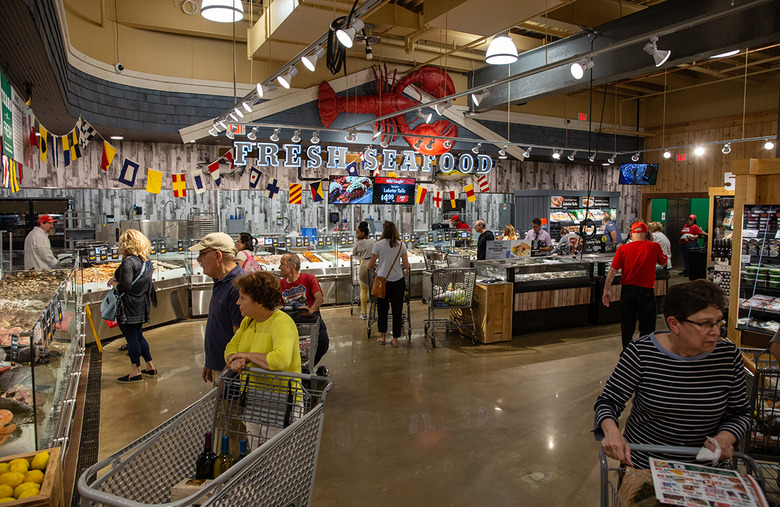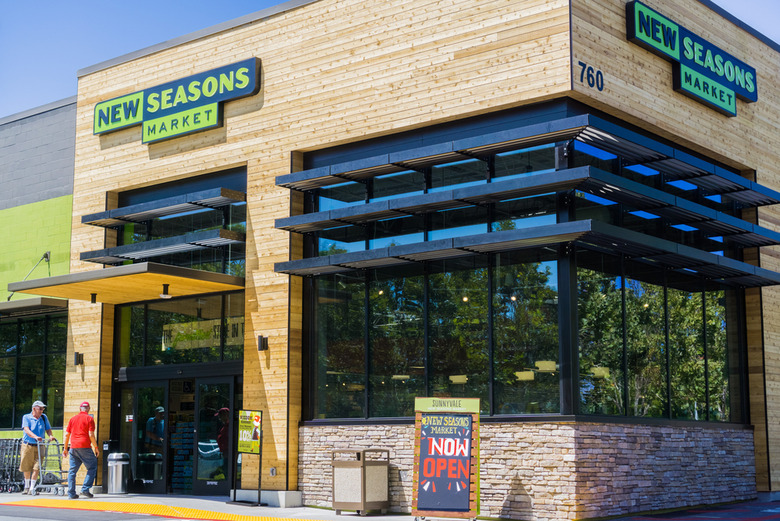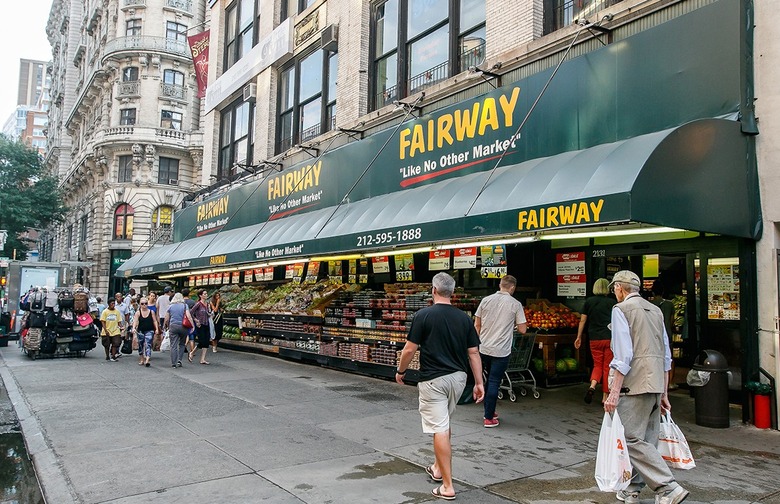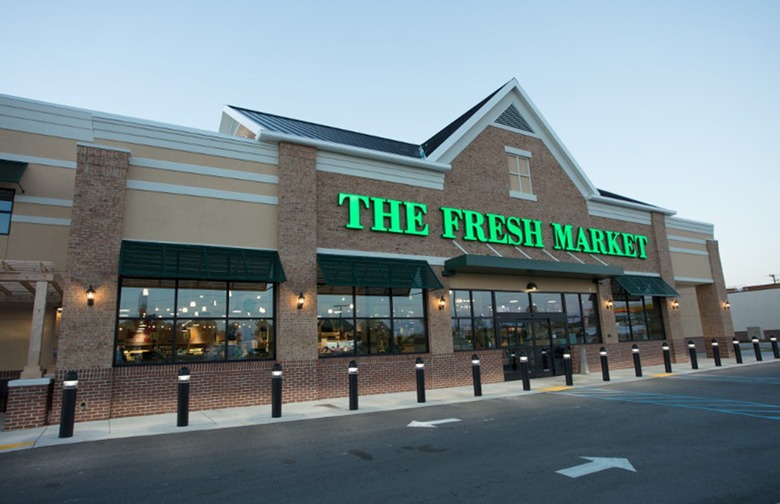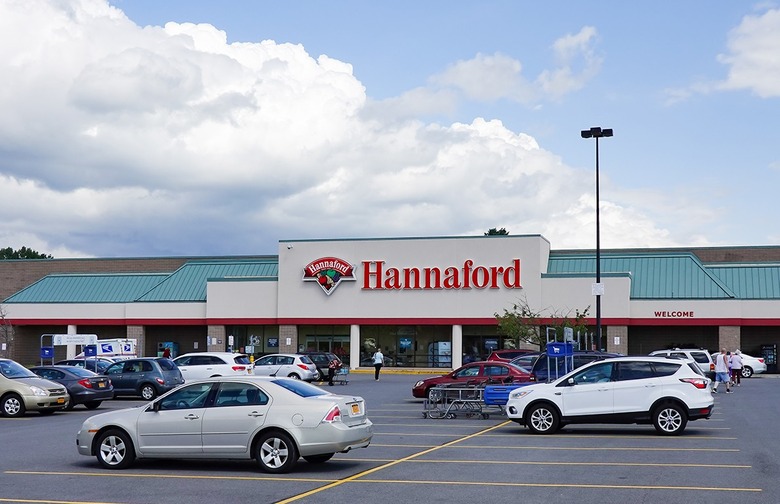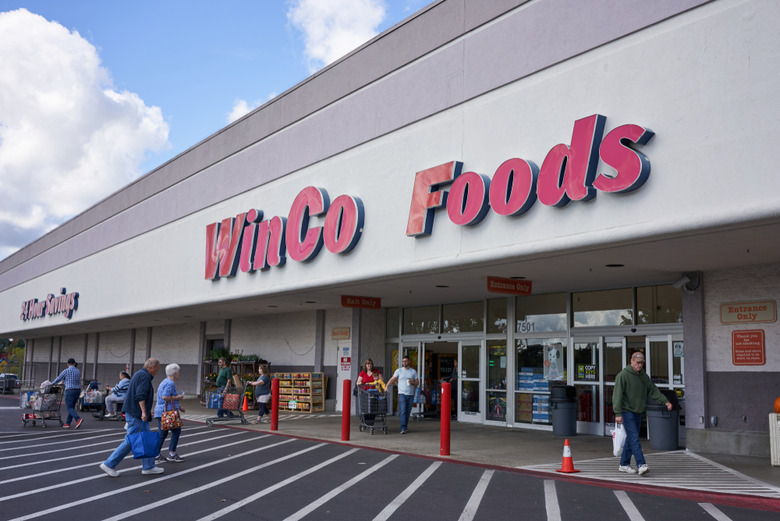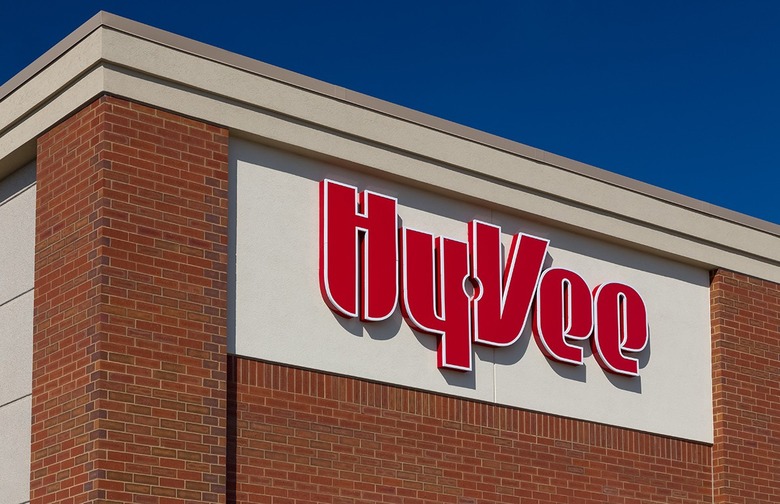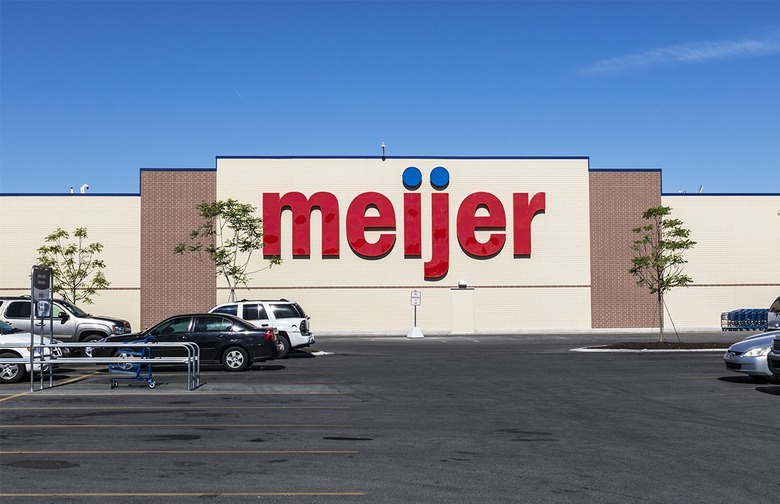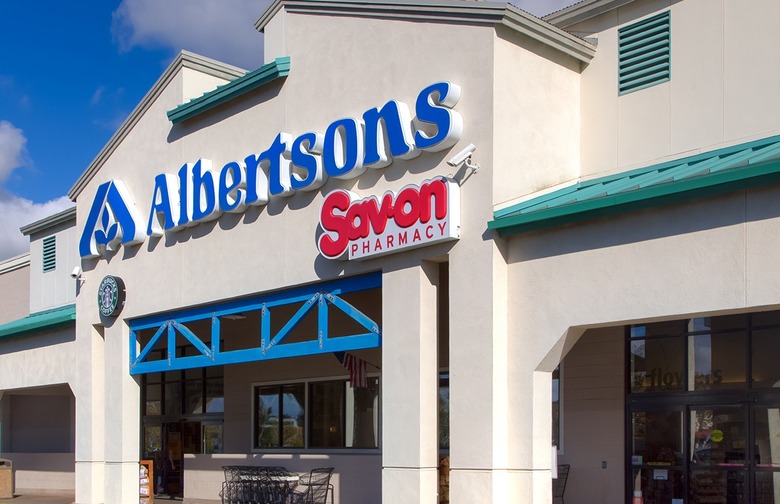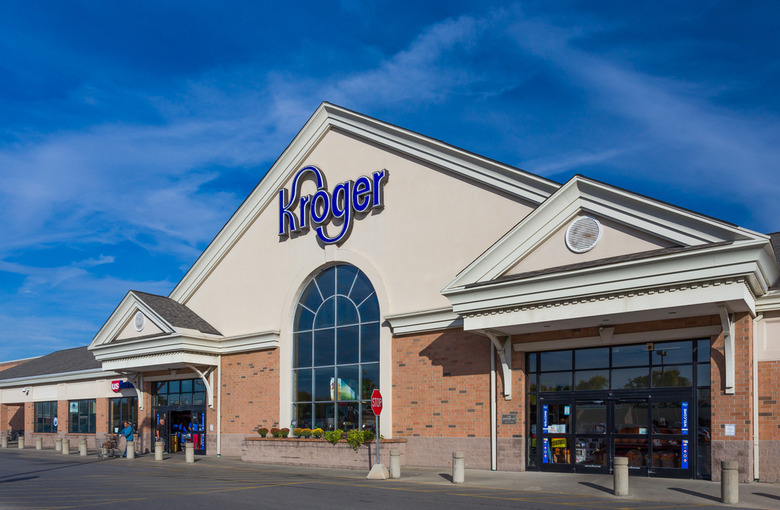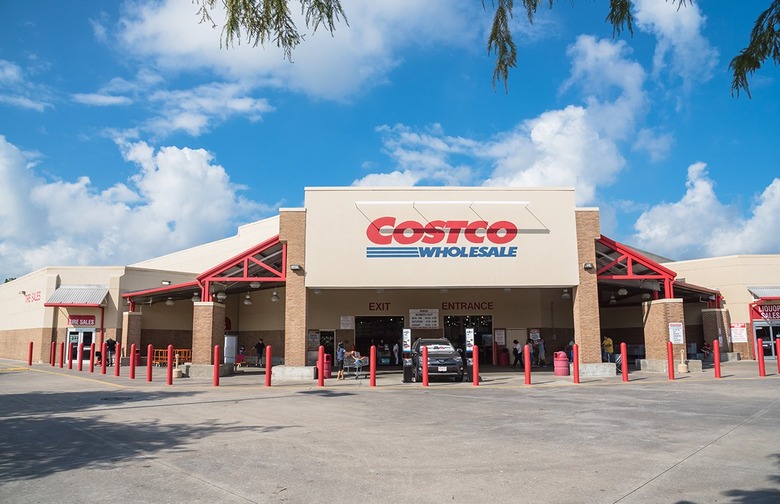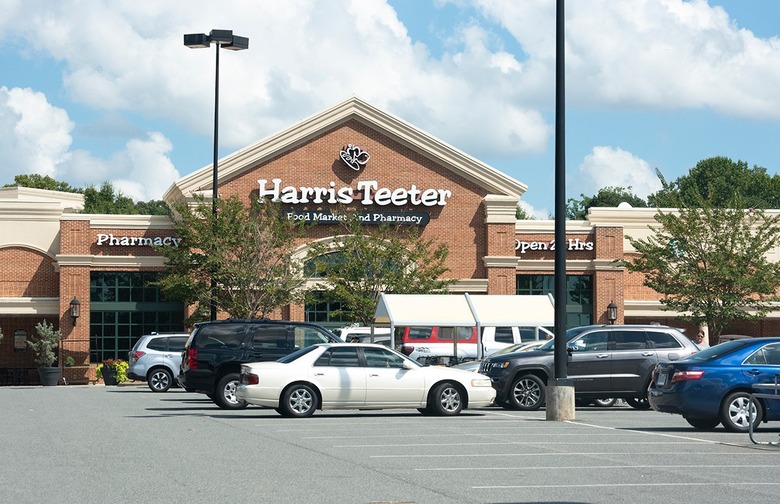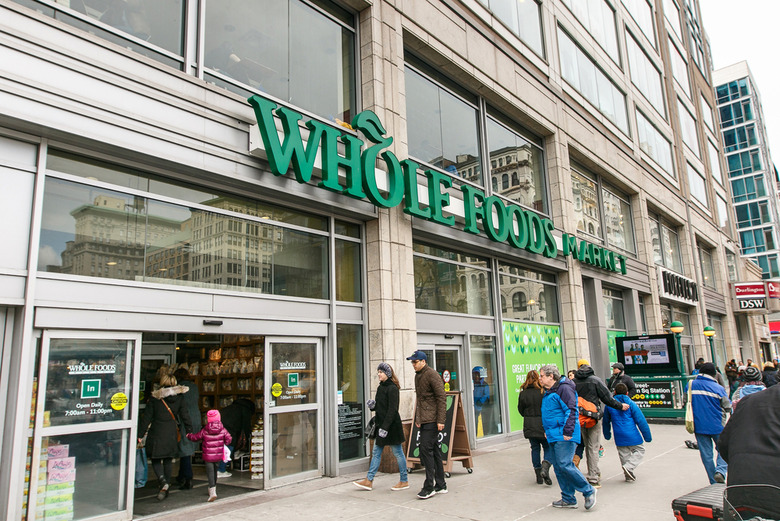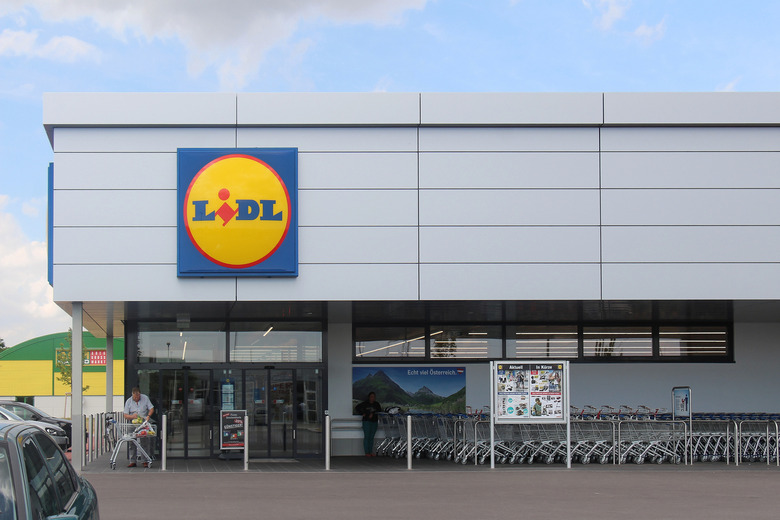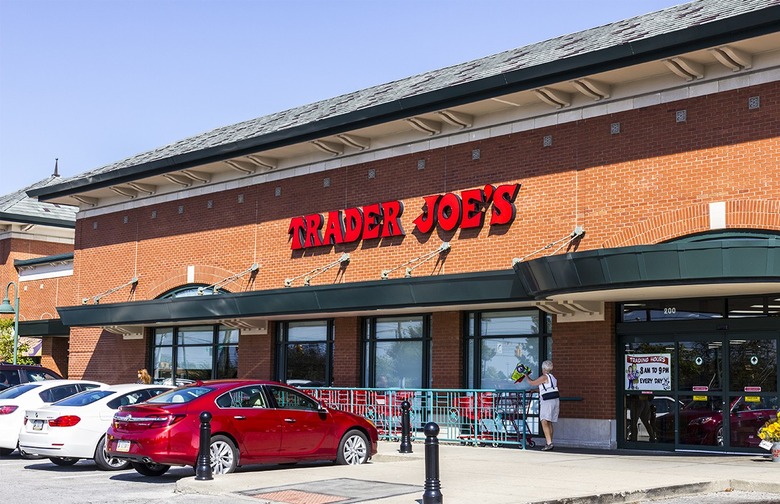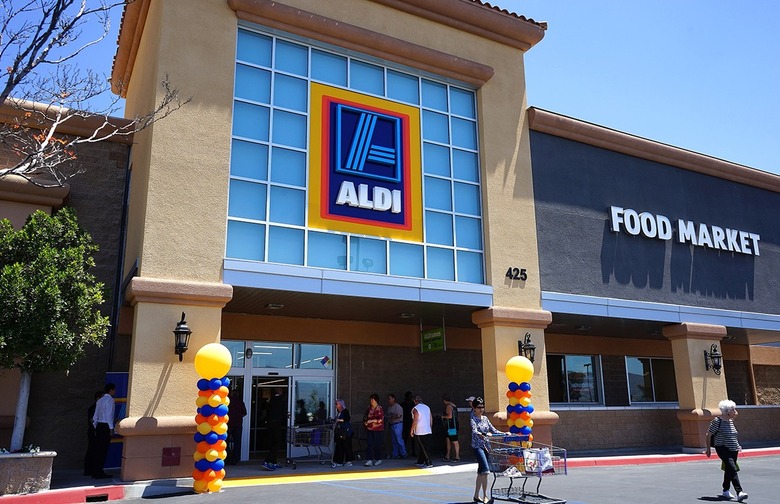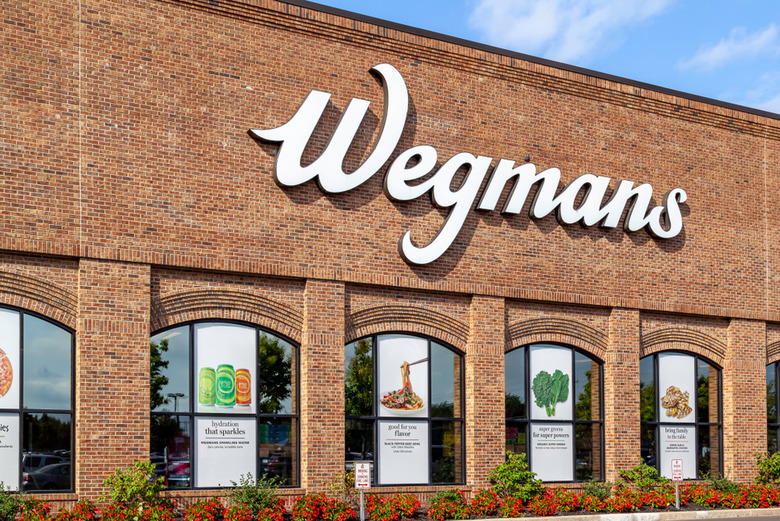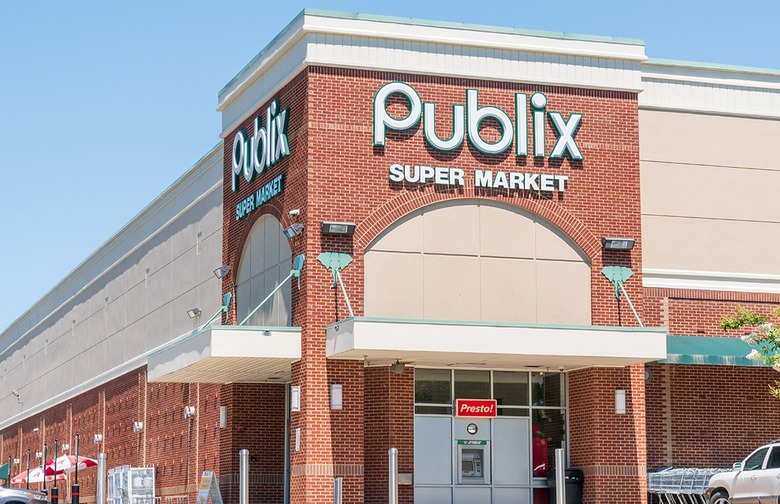The Best Grocery Stores In America
There are thousands and thousands of supermarkets and grocery stores in America, meaning competition between chains is fierce. With the competitive landscape more crowded than a Costco on the weekend, it's a great time to sift through inventory and rank the top 20 supermarket chains in the country.
For the purposes of this list, we're defining supermarkets as brick-and-mortar grocers, grocery stores, membership-only warehouse clubs and nationwide department store retailers that have supermarkets within their retail locations. Convenience stores, delis, farmers markets, local markets and virtual shops like FoodKick and Peapod were not considered. In addition, we considered only supermarkets that have outposts in multiple states and that have at least five locations.
We judged these supermarkets according to the following criteria:
Stock: Thoughtful shelf-stocking with a range of brands and offerings, including organic, locally sourced, artisanal, local favorites, international foods and private label.
Services/Departments: Departments, including butcher, deli, bakery and pharmacy.
Innovation: Delivery options, mobile apps and staying on top of the latest trends.
Customer service: Efficient checkout and self-checkout, easy returns/exchanges, loyalty programs and personal touches like baggers who take groceries to the car.
Contribution to the community: Creating local jobs, working with local farmers and suppliers, helping the less fortunate and giving importance to environmental sustainability.
Think your neighborhood supermarket has it in the bag to take the top spot? Check out our list to find out.
#20 Stew Leonard's
With seven stores in Connecticut, New York and New Jersey, Stew Leonard's is a small supermarket chain but a fun one. Founded in Norwalk, Connecticut, in 1969, Stew Leonard's has been dubbed the "Disneyland of Dairy Stores" by The New York Times — the chain is known as a fun place for families to shop because of the costumed characters, scheduled entertainment and petting zoos throughout the stores. Another aspect we love? The customer service. Stew Leonard's culture is built around a loose acronym for S.T.E.W.: Satisfy the customer; work together as a Team; strive for Excellence in everything you do; and get the customer to say Wow. And employees are treated just as well as the customers — the chain made Fortune magazine's list of the best companies to work for 10 consecutive years. Unlike most grocery stores that stock products in massive quantities, each Stew Leonard's store carries only 2,200 items, chosen specifically for their freshness, quality and value.
#19 New Seasons Market
With U.S. stores in California, Oregon and Washington, New Seasons Market is a progressive West Coast neighborhood grocer known for quality local products and fun weekend tastings from the best producers in Oregon, Washington and California. Founded in Portland, Oregon, in 2000, New Seasons Market stands out for its knowledgeable, friendly employees who are passionate about helping their community discover new flavors. The company also commits 10% of its after-tax profits back to the communities it serves. From the Bag it Forward reusable bag donation program, to Cans for Kids neighborhood donations, New Seasons Market prioritizes environmental sustainability. The store focuses on building and nourishing the communities it serves — from smaller neighborhoods to the global food scene.
#18 Fairway Market
Dubbed "New York's favorite grocery store," Fairway Market claims to be "like no other market." Established in the 1930s in the New York City area and now with 15 stores in Connecticut, New Jersey and New York, Fairway Market has become famous for stocking an extensive selection of small-batch products, high-quality prepared foods and specialty and gourmet offerings, along with a full assortment of conventional groceries. Favorites include fresh-baked breads, hand-sliced smoked salmon, the full-service butcher shop and the store's made-to-order chopped salads. In the summer of 2019, Fairway Market opened "The Cooking Place," with over 100 class offerings that range from date nights to authentic global cooking — the curriculum is designed to teach an ordinary home cook everything from the basics to complicated dishes.
#17 The Fresh Market
The Fresh Market is a specialty grocer known for its curated selection of delicious and innovative foods, friendly and knowledgeable staff, and warm and welcoming environment. Founded in Greensboro, North Carolina, in 1982 by Ray and Beverly Berry, who sought to create a European-style food market, the Fresh Market's customers can expect to find items that make everyday eating exciting, from small-batch, artisanal pastas to unique baking ingredients. The selection of USDA prime beef is noteworthy, as are the chain's private-label products, many of which are exclusive to The Fresh Market. Caffeine lovers can peruse the large coffee selection, including a java station with free samples. The old-world style butcher shop, floral stand, in-store bakery and selection of fresh cheeses and cured meats round out this charming supermarket. The Fresh Market has 159 stores in 22 states in the Northeast, Midwest and South.
#16 Hannaford
What started with Arthur Hannaford selling fresh produce from a one-horse cart in Portland, Maine, in 1883 has transformed into more than 180 Hannaford stores in five states (Massachusetts, Maine, New Hampshire, New York and Vermont). The East Coast company partners with more than 800 local companies and farmers to stock 6,000-plus products in its stores. In 2006, Hannaford launched the Guiding Stars program, a science-based store navigation system that rates the nutritional quality of every food in the store and makes it easy for shoppers to find foods right for them. Hannaford was also the first grocery store in the U.S. to receive LEED Platinum certification for a newly opened, environmentally friendly store in 2009. And in 2012, it became the first major supermarket in the U.S. to document that all seafood products sold in every department are sustainably harvested. In 2016, Hannaford opened a new large-format concept store in Bedford, New Hampshire, with an in-store kitchen, cafe and specialty-shop-style departments.
#15 WinCo Foods
WinCo Foods began in 1967 as a discount grocer called Waremart in Boise, Idaho. Proudly Boise-based to this day, the company became WinCo Foods in the late 1990s after an employee vote. The name stands for both Winning Company and as an acronym for the five original states: Washington, Idaho, Nevada, California and Oregon. Today, there are 126 employee-owned stores in 10 states. The company does things a bit non-traditionally, which is partly the reason it can offer low prices without having to compromise on quality. For one, it doesn't take credit cards (debit cards are accepted) and there are no grocery baggers, because these costs would have to be passed on to the customers. WinCo has its own warehouse, distribution and transportation system, which allows the company to deal directly with suppliers and vendors and eliminate costs in the middle. This helps keep prices as low as possible. The supermarket is famous for its bulk foods section, where customers can choose from over 800 items like candies, nuts, seasonings and coffee beans, and fill up a bulk food bag with however much they want. Shopping in bulk is one of the best tricks shoppers can use to save money at the grocery store. The produce is also exemplary, in part because the current CEO — a 34-year veteran of the company who started pushing carts when he was a teen — spent many years as a produce manager in the stores.
#14 Hy-Vee
Hy-Vee has more than 240 stores in eight Midwestern states. Since the chain's founding in 1938, the stores have operated autonomously, choosing their own inventories, prices and advertising. The chain adds a dash of Midwestern charm with its "A Helpful Smile in Every Aisle" slogan, which is evident in each of the employee-owned stores in Illinois, Iowa, Kansas, Minnesota, Missouri, Nebraska, South Dakota and Wisconsin.
#13 Safeway
Albertsons Companies operates over 2,200 stores across 30 states and the District of Columbia under more than 20 banners, including Acme, Shaw's, Tom Thumb, Vons and Albertsons (which is ranked on our list). Nearly 900 of the company's stores are Safeway stores, which operate in 16 states and Washington, D.C. Founded in 1915 in American Falls, Idaho, Safeway focuses on providing customers fresh products no matter how they shop. Extra perks include home delivery via Safeway's own in-house drivers as well as Instacart in nearly 2,000 locations, along with the Just for U loyalty program, which offers customer and gas rewards.
#12 Meijer
Founded in 1934 in Greenville, Michigan, Meijer now has more than 240 stores in six states: Illinois, Indiana, Kentucky, Michigan, Ohio and Wisconsin. Meijer created the "supercenter" concept and is known for its fresh produce, broad selection and pharmacies that offer select free prescriptions. Friendly service and stores that are open 24 hours a day round out the reasons Meijer lands at No. 12.
#11 Albertsons
Albertsons Companies operates just over 400 Albertsons stores in 14 states (Arkansas, Arizona, California, Colorado, Idaho, Louisiana, Montana, North Dakota, New Mexico, Nevada, Oregon, Texas, Utah and Washington). Founded in 1939 in Boise, Idaho, Albertsons offers fresh products in stores or online with convenient options like Drive Up & Go, home delivery and meal kits from Plated. The chain has its own private labels like Open Nature, a line of natural products free from antibiotics and MSG, and O Organics with 1,500 products. In 2019, Albertsons launched its plant-based protein line. Albertsons also recently introduced the Signature Reserve label to highlight 31 super-premium seasonal and everyday products. In 2017, along with the Albertsons Companies Foundation, Albertsons Companies gave nearly $300 million in food and financial support to charities addressing disabilities, hunger relief, education, cancer research and treatment, and veterans outreach.
#10 Kroger
The Kroger Co. is America's largest grocery retailer with 2,800 stores in 35 states and Washington, D.C. The company operates under more than a dozen banners like Fred Meyer, Fry's, Mariano's, Ralphs and Smith's, so it's no surprise that two of its stores: Harris Teeter and Kroger, are on our list. Founded in 1883 in Cincinnati by Barney H. Kroger, the company works with more than 30,000 suppliers and manufacturers and operates a culinary innovation center in its home city. Murray's Cheese, the country's oldest cheese shop, now has more than 400 locations in Kroger stores nationwide, and Kroger recently acquired Chicago-based meal kit startup Home Chef. Online services include Kroger Ship, a ship-to-home service that incorporates more than 50,000 items and is rolling out nationwide, as well as delivery and pickup options from over 1,500 store locations. The company's largest charity initiative is Zero Hunger, Zero Waste, which aims to address food insecurity and encourage sustainability.
#9 SuperTarget
Since the first Target store opened in 1962 in Roseville, Minnesota, the department store retailer has focused its efforts on one-stop shopping, which is helpful if you're trying to check off a list in under 30 minutes. The second-largest general retailer in the U.S. with 1,850 superstores, Target also sells groceries. Target's private food labels — like Archer Farms and Market Pantry — include thousands of grocery products. In September 2019, Target rolled out a new label called Good & Gather, which the company is pushing to become its flagship food and beverage brand. The chain is also currently working on new, broader packaging using fewer materials and incorporating more recycled or renewable sources. The goal is to complete this project by 2022, reinforcing the company's sustainability model that has remained a core value for decades.
#8 Costco
The membership warehouse club has hundreds of locations worldwide and 98.5 million members as of September 2019. Not only does Costco provide a wide selection of meat, produce and groceries in bulk in its palatial warehouse stores, it also offers alcohol as well as consumer goods and exclusive member services like a travel agency and gas stations. Costco's business model is designed to provide value, offering national and regional brands priced below traditional wholesale or retail outlets to members, who pay a $60 annual fee. Costco also sells its private label, Kirkland Signature, which includes juices, cookies, coffee, housewares, luggage, clothing and of course its famous and wildly popular $4.99 rotisserie chicken.
#7 Harris Teeter
Now a smaller branch of The Kroger Co. after being purchased in 2014, Harris Teeter sprang up from a 1960 merger of two North Carolina grocers founded in the 1930s. Harris Teeter currently operates more than 230 stores and 14 fuel centers in seven states (Delaware, Florida, Georgia, Maryland, North Carolina, South Carolina and Virginia) and Washington, D.C. Not only that, but it can be considered the best grocery store in all of Delaware. Known for tidy stores and an extensive prepared foods section, Harris Teeter also contributes to local communities through donations to food banks, youth sports and schools, and takes part in broader Kroger Co. initiatives as well. Though Harris Teeter helped pioneer the plastic grocery bag in the 1980s, the chain and parent company have announced plans to phase out single-use plastic bags and transition to reusable bags by 2025.
#6 Whole Foods Market
The giant chain grew from humble beginnings to having stores in all but eight U.S. states. Known for stocking thousands of organic products from local and global suppliers, Whole Foods sells only products that meet strict quality standards and prohibits more than 100 preservatives, flavors, colors and other ingredients commonly found in food. The meat department has similarly strict standards regarding animal welfare and the use of antibiotics and hormones, while the seafood department sells only sustainable, wild-caught or responsibly farmed seafood. Each store offers a variety of restaurants and cafes, and some have in-store beer and wine bars. In 2008, Whole Foods Market became the first supermarket to remove disposable plastic bags at checkout, and the company has a comprehensive and preventative food waste strategy to divert food from landfills. Staff members include certified sommeliers and cicerones, classically trained butchers and fishmongers who will prepare fresh seafood for customers at no extra cost. After being acquired by Amazon in 2017 for $13.7 billion, Whole Foods began offering additional discounts to Amazon Prime members as well as improving delivery with Prime Now.
#5 Lidl
This is only the second year Lidl has been on our annual list and it is definitely gaining some momentum. A family-owned company, Lidl opened its first store in 1973 in Ludwigshafen, Germany, and made its U.S. debut in 2017 with 10 stores across North Carolina, South Carolina and Virginia. The German supermarket is famous for its high-quality fresh produce and meat, in-store bakery and low prices. One 2018 academic study even identified a "Lidl Effect" — the result of which grocery retailers located near Lidl stores significantly lowered their own prices. Wine and flowers are also standout staples at the store — Lidl is the only grocer in the U.S. with a dedicated master of wine who is responsible for hand-selecting every bottle on store shelves, so shoppers can easily whip together some classic cocktails. Lidl is expected to have more than 100 U.S. stores by the end of 2020.
#4 Trader Joe's
The simple, fuss-free culture of Trader Joe's and its laid-back approach to returns and refunds is one of the reasons it ranks so high. Trader Joe's has stores in 41 states and the District of Columbia and has a very loyal fanbase. To help keep prices down, the store carefully curates Trader Joe's branded products as it doesn't offer special promotions, coupons, discounts or sales. Since the store doesn't exactly have a product inventory on its website, customers rely on blog posts by the company introducing new items or the Fearless Flyer, a newsletter on product information and the latest stock of goods. Some products are bought in limited supply and sold only for a short time while others have a cult-like following and have become staples, like the Everything but the Bagel Sesame Seasoning Blend, Speculoos Cookie Butter, and Joe-Joe's Chocolate Vanilla Crème Cookies. The crew members who work in the stores are easy to spot thanks to their bright Hawaiian T-shirts worn to style the store staff as "traders on the culinary seas." Owned by one branch of German supermarket giant Aldi, Trader Joe's is considered by some to be the absolute best place to buy certain grocery items.
#3 Aldi
More than 40 million customers shop at Aldi each month — and for good reason. Founded by the Albrecht family in 1961, the German grocer operates more than 1,800 U.S. stores in 35 states (the first store opened in Iowa in 1976). The no-frills supermarket has a scare five or six super-wide aisles and stocks only about 1,400 items — much fewer than traditional supermarkets. Aldi's model is based on efficiency, and tactics like "inserting a quarter for a cart" actually work. Customers also bag their own groceries, which is yet another way the store saves on labor costs that lend to super cheap prices. The grocer sells frequently purchased grocery and household items from small kitchen appliances to outdoor furniture and gardening tools, primarily under its exclusive brands. About 90% of the products in each store are Aldi's brand, which are taste tested in the Aldi Test Kitchen to ensure quality competitive with national brands. These products are backed by the supermarket's Twice as Nice Guarantee, which promises to replace and refund any items customers aren't 100% satisfied with. Aldi also partners with local growers and farmers to offer fresh produce, including organic fruits and vegetables, and USDA meats.
#2 Wegmans
Founded in 1916, Wegmans has more than 100 stores across seven states (Maryland, Massachusetts, New Jersey, New York, North Carolina, Pennsylvania and Virginia). The aisles are stocked with an abundance of choices in beautiful stores. Wegmans offers restaurant-quality prepared foods with oven-safe packaging, cold-pressed juices, zoodles and cauliflower rice. The supermarket's commitment to sourcing the highest-quality seasonal produce is due to Wegmans Organic Farm and Orchard in Canandaigua, New York, where different growing techniques are tested — the facility even includes cheese caves built to mimic those in Europe. The seamless shopping experience, from curbside pickup at select locations to the Wegmans app, digital coupons and online catering and cake orders make the supermarket a top-notch place to shop. The chain has also been named one of the "100 Best Companies to Work For" by Fortune magazine for 21 consecutive years and came in No. 3 in 2019.
#1 Publix
The largest employee-owned supermarket chain in the U.S., Publix was founded by George W. Jenkins in 1930 in Winter Haven, Florida. Now one of the largest-volume supermarket chains in the country, Publix reported retail sales of $36.1 billion in 2018. The grocer ranked No. 1 on Fortune's inaugural list of Best Big Companies to Work For and came in 12th on the 2019 list. The company has over 1,200 stores in seven states (Alabama, Florida, Georgia, North Carolina, South Carolina, Tennessee and Virginia) with the majority — 799 stores — in Florida. Commentators have heralded Publix as the best supermarket for many reasons, including Plato the Publixaurus (the supermarket's mascot), the free cookies given to children at the in-store Publix Bakery (just stop by and ask), its Public Aprons Cooking School and the "Publix Promise" of transparent pricing. Not to mention the legendary sub sandwiches from the Publix Deli — which fans may argue are better than many of the best sandwiches across the country.
More From The Daily Meal:
The Official State Dish of Texas and 35 Other Fun Food Facts
The Best Italian Restaurants in America
